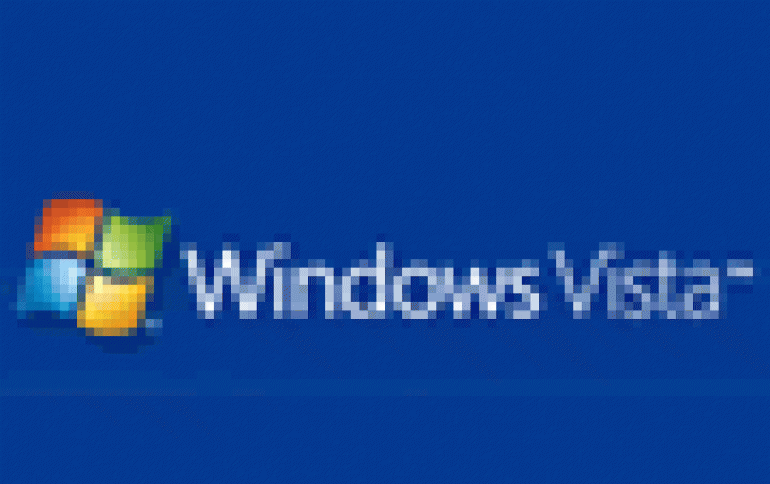
Microsoft Makes Changes to Vista in EU, S.Korea
Microsoft said on Friday it had made changes to its new Vista operating system to meet all the demands of the European Union and South Korea, hoping to avoid further antitrust action.
The European Commission and South Korea, both of whom have been at loggerheads with Microsoft for years, were concerned the company would dent competition because the inclusion of its own software with Vista would put people off buying rival products.
After speaking to top EU antitrust chief Neelie Kroes on Thursday, the company said it made changes to its Internet, fixed document format and security software in Vista, while Korean consumers would get a unique version of the system.
"Microsoft agreed to make each of the changes that the Commission advises us today," the company's top lawyer, Brad Smith, told reporters on a conference call.
"Having made these changes, the company and (Microsoft Chief Executive) Steve Ballmer feel comfortable moving forward, feel confident that we are in compliance with our EU competition law obligation."
Ballmer said on Monday that he believed changes made to the software company's Vista operating system would satisfy the concerns of the European Union.
Asked when Microsoft would deliver required data to software security firms, Ballmer, speaking on the sidelines of a meeting with a bank in Rome, said: "Today, Seattle time."
The Commission, the EU's executive, said it recognized that Microsoft had made the changes to Vista, but declined to comment on whether it was satisfied, reiterating it was not up to the EU executive to give Vista a green light.
The Commission also said it would closely monitor the effects Vista had on the market and any complaints relating to it.
Microsoft said the changes to Vista would remain regardless of the outcome of its appeal against a years-long antitrust case in which the Commission in 2004 levied a record fine of close to half a billion euros (almost $630 million).
South Korea too found the company guilty of anti- competitive behavior in December 2005, a ruling that Microsoft is again appealing.
The European Commission was worried the operating system would package features such as an Internet search function like Google's and software similar to that of Adobe's "pdf" fixed document formats.
The "bundling" of such software in an operating system run on more than 90 percent of all PCs may create a disincentive for customers to then buy products from Adobe or Google.
Security software companies such as McAfee Inc. and Symantec Corp. said Microsoft was preventing them from creating effective products by not cooperating with them sufficiently while developing its own programs.
Microsoft said it would create additional codes called APIs to give rivals access to the operating system's core and thus enable them to write effective security software.
It said consumers would be able to set their default Internet search program using whichever engine they wanted. It would also submit its own fixed document format software to a standards-setting organization and revise licensing terms.
After speaking to top EU antitrust chief Neelie Kroes on Thursday, the company said it made changes to its Internet, fixed document format and security software in Vista, while Korean consumers would get a unique version of the system.
"Microsoft agreed to make each of the changes that the Commission advises us today," the company's top lawyer, Brad Smith, told reporters on a conference call.
"Having made these changes, the company and (Microsoft Chief Executive) Steve Ballmer feel comfortable moving forward, feel confident that we are in compliance with our EU competition law obligation."
Ballmer said on Monday that he believed changes made to the software company's Vista operating system would satisfy the concerns of the European Union.
Asked when Microsoft would deliver required data to software security firms, Ballmer, speaking on the sidelines of a meeting with a bank in Rome, said: "Today, Seattle time."
The Commission, the EU's executive, said it recognized that Microsoft had made the changes to Vista, but declined to comment on whether it was satisfied, reiterating it was not up to the EU executive to give Vista a green light.
The Commission also said it would closely monitor the effects Vista had on the market and any complaints relating to it.
Microsoft said the changes to Vista would remain regardless of the outcome of its appeal against a years-long antitrust case in which the Commission in 2004 levied a record fine of close to half a billion euros (almost $630 million).
South Korea too found the company guilty of anti- competitive behavior in December 2005, a ruling that Microsoft is again appealing.
The European Commission was worried the operating system would package features such as an Internet search function like Google's and software similar to that of Adobe's "pdf" fixed document formats.
The "bundling" of such software in an operating system run on more than 90 percent of all PCs may create a disincentive for customers to then buy products from Adobe or Google.
Security software companies such as McAfee Inc. and Symantec Corp. said Microsoft was preventing them from creating effective products by not cooperating with them sufficiently while developing its own programs.
Microsoft said it would create additional codes called APIs to give rivals access to the operating system's core and thus enable them to write effective security software.
It said consumers would be able to set their default Internet search program using whichever engine they wanted. It would also submit its own fixed document format software to a standards-setting organization and revise licensing terms.





















